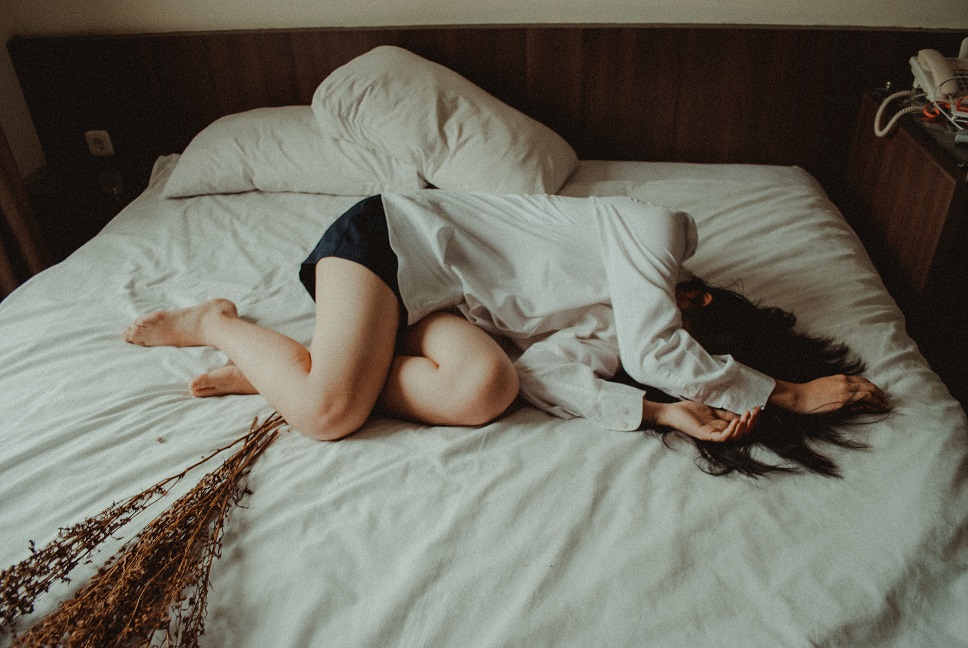Do you ever stay up tossing and turning in bed, even though you just want to fall asleep? Keep waking up throughout the night? Don’t feel refreshed in the morning even though you should have gotten a healthy amount of sleep? Have you ever considered that you may be dealing with one of many different types of insomnia?
Issues with sleep are a common problem for many people today. Sleep is an important health behavior that regulates our mental and physical condition. Therefore, the mental and physical effects of poor sleep are immeasurable. What causes these disturbances in the vital function of sleep? How can we improve our disrupted sleep habits, and regain a healthy sleep pattern? Many people who experience insomnia and sleep disturbances don’t have a proper understanding of sleep, to begin with.
In order to get rid of these sleepless nights and regain comfortable and healthy sleep habits, the first step may be to understand the basics and the different insomnia types.
Contents
The Different Insomnia Types
Generally, insomnia is defined by a lack of proper sleep for over a month. Symptoms include fatigue, decreased motivation, decreased concentration, and loss of appetite during waking hours. The cause of insomnia varies, including but not limited to day-to-day stress, psychological illnesses, or side effects of medication. In fact, the duration of sleep is not very important in the definition of insomnia. What matters is whether or not you feel unwell during the day. Many experts agree that even if the actual duration of sleep is short, it is not a problem as long as there are no negative symptoms during the day.
Following this, there are several insomnia types.
・Sleep Onset Insomnia: Struggling to fall asleep, no matter how hard you try, even though it’s night time and you’re in bed.
・Sleep Maintenance Insomnia: Waking up multiple times throughout the night.
・Sleep Offset Insomnia: Waking up too early in the morning or earlier than intended, and struggling to fall back asleep.
・Nonrestorative Sleep: Lack of feeling rested even though you should have gotten enough sleep.
If these symptoms persist, you may eventually develop a dislike towards the act of going to sleep or sleep itself. This can lead to a vicious cycle of tension when falling asleep and a strong sense of commitment to sleep. Consequently, this worsens the symptoms of each of the insomnia types.
Don’t Worry if You Can’t Sleep
All of us have, at least once, experienced the feeling of being unable to sleep even though you want to. Moreover, it is possible for anyone to experience these symptoms for a few days in a row. However, this alone does not mean you have insomnia. Even if you had trouble sleeping for 2 to 3 days, as long as you feel OK during the day, it shouldn’t be too much to worry about. In fact, worrying about “what if I have insomnia?” might actually lead to tension before sleep, potentially leading yourself into a chronic pattern of insomnia.
To avoid falling into any of the insomnia types, try not to stress about it, even if you can’t sleep. The key to maintaining a healthy sleep is to think positively, relax your body, and tell yourself, “maybe I’m having trouble sleeping today, but tomorrow will be just fine.”

How Much Should We Sleep, Anyway?
The hours of sleep required for a healthy lifestyle varies from person to person. Some people will feel sleepy during the day even though they got 7 hours the night before. Conversely, some people will function perfectly fine on just 3 hours of solid sleep. Many people who have trouble sleeping believe that they need to get more than 6 hours for it to be healthy sleep. In this way, they end up raising the bar for themselves regarding the duration and quality of their sleep. However, the hours required for a healthy sleep varies from person to person. Therefore, there is no need to apply generalizations to your own sleep and stress about the exact hours of sleep you are getting.
It is also important to remember that the amount of sleep you need to maintain good health changes with age. This is due to changes in the body’s internal clock caused by aging. The typical nighttime sleep duration is 8 to 9 hours up to age 10, about 8 hours at age 15, about 7 hours at age 25, about 6.5 hours at age 45, and about 6 hours at age 65. In other words, it is quite natural for us to need less sleep as we age. Therefore, there is no need for much concern if you find it harder to sleep than when you were younger.

How to Escape Those Sleepless Nights
In order to improve your sleeping habits, it is most important to get your body into a “sleep-friendly” state before going to bed. To achieve this, it is necessary to relax your body and mind and create an environment suitable for sleep. It is also important to eliminate any elements that may interfere with sleep as much as possible.
Here are some ways to improve your sleep that you can try right away.
Wake up at the same time and bathe in sunlight
The human brain switches from “sleep mode” to “waking mode” when exposed to sunlight after waking up. It is also believed that people generally begin to feel sleepy 14 to 16 hours after waking up. In other words, by waking up at the same time every morning and exposing yourself to sunlight, your body can become accustomed to your lifestyle rhythm, becoming sleepy at the same time every night. The important thing is to keep your waking time the same even if your bedtime is later. This way, even if you stay up late, your body clock will not be disturbed and you will be able to maintain your daily rhythm.
Only get in bed once you are sleepy
It’s hard to fall asleep when your body and brain aren’t ready for it. Thinking that you have to sleep immediately creates tension in your body and mind, making it even harder to sleep. Firstly, try to relax both your body and mind, and only get in bed when you naturally feel like sleeping. Moreover, avoid spending time in bed unless you are going to sleep. If you spend time on your bed when you don’t intend to sleep, your brain will begin to recognize it as a place of activity. Consequently, it will be difficult to switch your brain to “sleep mode” when you are actually ready to sleep.
Relax your mind and body
For a good night’s sleep, it is of utmost importance to relax both your body and mind. Try to relax by doing some light stretching before bedtime or lighting candles with relaxing scents. Another tip is taking a bath 1 to 2 hours before bedtime. This will help lower your body temperature and make it easier to fall asleep.
Things to avoid before sleep
Refrain as much as possible from activities that may interfere with falling asleep. It is said that the blue light emitted by TV and smartphone screens have the effect of waking up the brain. Refrain from watching TV or using using your phone before going to bed. Moreover, nicotine in cigarettes and caffeine in coffee and other beverages also have the effect of waking the brain, so it is best to avoid these before bedtime. Intense exercise also causes the body to release adrenaline, a stimulant that makes it difficult for the brain to sleep. When exercising to relax, try to keep it to light stretching.

In order to get rid of any of these insomnia types, it is important to face your own sleeping habits with the correct understanding and to practice habits for better sleep. However, there are various causes of insomnia that plague many people today. Depending on the cause, it may not be possible to solve the problem by one’s own efforts alone. If your insomnia is the byproduct of mental or physical illness, or a side effect of medication, you may need to improve it under the guidance of a professional doctor.
Say Goodbye to Sleeplessness!
Sleep is a health behavior that is essential for humans to sustain life. It also occupies so much time in our lives that most people spend one-third of their lives sleeping. Having a good sleep habit will help you maintain good physical and mental health throughout your life. Subsequently, it will contribute to your ability to reach your full potential and achieve further growth.
It may not be easy to change the lifestyle habits that are already ingrained in your body and develop better sleeping habits. But if you think that it will make your life healthier and more fulfilling, it will be well worth the effort.
→ Looking to improve your mental health? Try the SELF MIND app FREE for 1 week!
If you’re looking for more tips on how to care for your mental health, check out some of our past blog posts!
Image:Unsplash
References:
Munezawa, T., & Mishima, K. (2009). Cognitive Behavior Therapy for Insomnia. Journal of Mental Health, 55, 71-78.
Uchiyama, M. (2010). Clinical Managements of Insomnia and Hypersomnia. Journal of Nihon University Medical Association 69(1), 11-16. doi: 10.4264/numa.69.11



